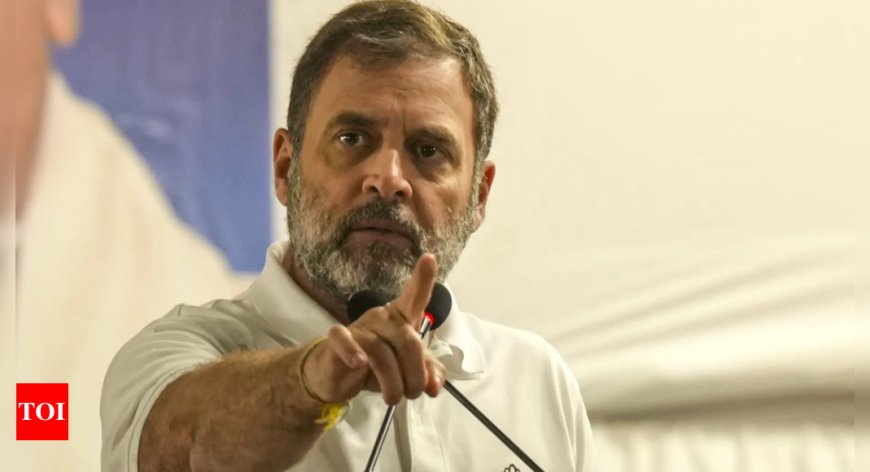Rahul Gandhi is in complete grip of urban Naxal thinking: Ravi Shankar Prasad
BJP criticizes Rahul Gandhi for allegedly aligning with Hindenburg Research to destabilize India as the firm announces its closure. Ravi Shankar Prasad questions Gandhi's intentions and ties Hindenburg's activities to Congress's moves, insisting on their attempts to disrupt the Indian state. BJP continues its attacks following these developments.

Rahul Gandhi is in Complete Grip of Urban Naxal Thinking: Ravi Shankar Prasad
In a recent statement, Ravi Shankar Prasad, a prominent leader in Indian politics, made a bold assertion regarding Rahul Gandhi's ideological stance. He claimed that Rahul Gandhi is firmly ensnared in the 'Urban Naxal' mindset, a term often used to describe individuals who allegedly support extremist ideologies while operating within urban environments. This statement has sparked widespread discussions across various media platforms.
The Context of the Statement
Ravi Shankar Prasad's comments come in the wake of increasing tensions regarding political strategies and ideological discrepancies within India's major political parties. The term 'Urban Naxal' has gained traction in political discourse, often referring to intellectuals, activists, and politicians who are perceived to be sympathetic to Maoist ideologies.
Understanding the 'Urban Naxal' Label
The label 'Urban Naxal' is controversial and has provoked much debate in Indian society. Proponents of this term argue that it signifies a growing threat within urban areas where dissent is articulated through intellectual discourse and activism. Critics, however, view it as a politically motivated term employed to discredit opposition voices and stifle dissent.
Reactions to Prasad's Remarks
The response to Prasad's claims has been varied. Many supporters of the ruling party echo his sentiments, suggesting that Gandhi's positions reflect a disconnect from mainstream political and social values. Conversely, opposition leaders and some academics argue that such labels are an attempt to demonize dissent and suppress genuine political dialogue.
Implications for Indian Politics
This exchange highlights the growing divide within Indian politics, where ideological battles have become as critical as electoral contests. As both sides continue to engage in scrutiny and criticism, the public's perception of political leaders is shaped by such dynamic interactions. The significance of nuanced political discussions and the importance of understanding varying perspectives cannot be overstated.
As the political landscape of India evolves, such comments foster essential conversations about democracy, dissent, and the role of ideology in governance. Moving forward, it remains crucial for citizens to critically assess the information presented to them and engage in constructive debates on the nation's future.
For more updates on this topic and many others, visit dharmyuddh.com. Stay informed and engaged. Keywords: Rahul Gandhi urban Naxal thinking, Ravi Shankar Prasad comments, Indian politics, Urban Naxal ideology, political discourse in India, dissent and democracy, ideological battles in India, political leaders controversy, current political trends in India, impact of urban Naxals on society.







